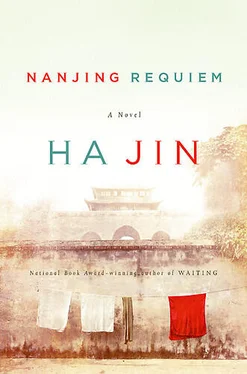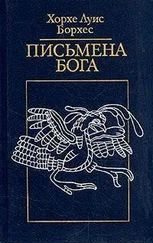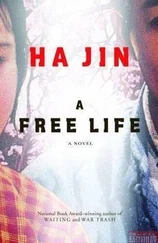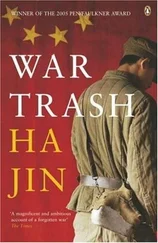“Holly, I’m sorry,” I murmured, and wrapped my arm around her.
The neighborhood was very quiet; you couldn’t hear any noise, not even the tiny chirps made by the sparrows that used to live in many of the roofs. Then a Siamese cat jumped out of a coal shack in the next-door neighbor’s yard and meowed forlornly, as though starved. Brushing away her tears, Holly said, “I guess this is it. Now I have no place to go.”
“You can always stay with us,” I said. That was hardly an invitation, since she was already indispensable to our school. She wasn’t just the only other foreigner on campus but was also, as a musician, needed for the chapel services. Besides, she’d been helping our nurse care for the sick and the women expecting or in labor.
When we returned to the campus, about four hundred men, women, and children were at the front gate, begging Luhai and Miss Lou to let them in. All the women wore white terry cloth over their hair; apparently they were from the countryside. A few old men were sucking on long pipes. I was somewhat surprised, because by now we were known as a camp for only women and children, and most men wouldn’t come to seek refuge anymore.
Minnie said to the villagers, “We accept only women and kids.”
“Please, we can’t go elsewhere,” a thirtyish man begged.
“Most of the other camps take in families. You should try them,” I told him.
“We dare not walk anywhere,” an older man said, donning a skullcap, the type called a melon-rind cap. “If the Japanese devils see us, they’ll kill us and grab our wives and daughters.”
A girl in her mid-teens shuffled over, wearing a pair of bandages on her forehead like two miniature crosses standing together, one taller than the other. “Please let me in, Aunties,” she wailed to Holly and me as we were still standing outside the gate. “I’m the only one left in my family.” She burst into tears.
“What happened?” I asked.
“Some Japs broke into the deserted building where we stayed last night, and they cut down my dad and brothers. Then they stripped my mom and me and started torturing us. I screamed, so they punched me again and again until I lost my voice and blacked out. When I came to, I saw my mom’s body in the room. She couldn’t take it anymore and hit her head on the doorjamb and killed herself.”
Minnie had come out of the gate by now. I realized that the girl had been raped and told her, “You must get treated. I’ll get someone to take you to the University Hospital.”
“I can’t walk anymore. If not for these good-hearted folks, I couldn’t have made it here.”
“Then you can come in,” I said.
After telling a staffer to take the girl to our infirmary, Minnie decided to lead the rest of them to the university camp. Holly offered to go along, but Minnie told her to stay because John Magee had just left and we needed at least one foreigner on campus to deter the soldiers.
Nanjing University was about a fifteen-minute walk from our college, and Minnie led the crowd away with a small U.S. flag in her hand, while I brought up the rear, bearing a Red Cross flag. Passing the closed American embassy, we saw two Japanese soldiers coming from the opposite direction and hee-hawing while prodding a reedy boy ahead of them with rifles. The teenager pushed a barrow that had a large wooden wheel ringed with steel. It was loaded with booty — a stack of dried salt fish, a bundle of potato noodles, a jar of duck eggs still in brine, a wall clock, and a trussed pregnant sheep, still bleating. The soldiers each had about a dozen silver bracelets, watches, and gold rings affixed to their belts. All the women in the procession lowered their heads until the soldiers passed.
When we arrived at the university, we found George Fitch, who had been managing the large camp there with Searle, squatting under a bulky linden, his head in both hands. “Hey, George, what’s the matter?” Minnie asked.
He raised his bony face, his eyes watery and somewhat bloodshot. “The Japanese took away two hundred men just now,” he told her.
“Were they surrendered soldiers?”
“No, many of them were civilians.”
“They just took whoever they wanted?”
“They ordered them to undress and checked their shoulders and hands. If there was a mark like something left by a knapsack or a rifle, they took the man. But most of the poor fellows were coolies who had to work with tools and carry stuff around, and of course they had marks on their shoulders and calluses on their hands. The Japanese arrested practically all the young men. There was no way to reason with them. Oh, Minnie, this is horrible, as if we still live in the Dark Ages.”
“What are they going to do to them?”
“Finish them off, I’m sure.”
“I guess they just want to kill to terrify the Chinese.”
“Also to wipe out all the able-bodied males.” He sniveled and blew his nose into a piece of straw paper.
Minnie said, “Maybe we shouldn’t have offered protection to those Chinese soldiers in the first place. Some of them were reluctant to give us their weapons, but we were so foolish that we promised them more than we can deliver.”
“I’ve thought about that too. With firearms they could at least have defended themselves.”
As we were speaking, a group of Japanese soldiers emerged, two of them dragging a scrawny man onto the lawn. I recognized Chang, who used to be a librarian at the university and now worked in the refugee camp as a file clerk. They meant to take him away, but he refused to go with them.
We all stood up to watch. The leader of this group, a lieutenant, ordered a new recruit to stab Chang. The young soldier hesitated, but the officer barked out orders again. The man charged at Chang, whose cotton-padded overcoat was so thick that the bayonet didn’t go through. Realizing they meant to kill him, Minnie and George hustled toward them to intervene. I followed, but the soldiers blocked us. Then, to our astonishment, Chang undid his buttons and dropped his coat on the ground, facing his attacker with just his thin jacket on, his sparse goatee wet with snot. The lieutenant again yelled at the young man, who rushed toward Chang with a wild shriek and stabbed him through. The clerk’s legs buckled, but his eyes were still fixed on his killer. Then he fell, blood pooling around him.
We were so stunned that for a while nobody could move or say a word. Then the troops marched away, and people gathered around Chang, who was breathing his last. “Revenge, revenge,” he mouthed.
He died within a few minutes. I had known this wispy moonfaced librarian by sight and heard he had a fiery temper, but I’d never thought much of him.
Having left the four hundred refugees with George Fitch, Minnie and I headed back. She panted a little as she walked, her gait ponderous but steady.
“I wonder why God let this happen to us Chinese,” I said. “What did we do to deserve this? Why doesn’t God punish those heartless men?” Just that morning I’d heard that a nephew of mine, my cousin’s seventeen-year-old son, had been seized by the Japanese the night before. His parents were distraught but dared not go out and look for him.
“God works in his own ways, hard for us to fathom,” Minnie said, but not convincingly.
Our ancient city, noted for its beauty and cultural splendor, had become hell overnight, as if forsaken by God. I couldn’t stop wondering whether there’d be retribution in store for the ruthless soldiers and their families. No one could brutalize others like this with impunity in the long run, I was sure.
That night, Searle Bates and Plumer Mills slept in our main dormitory and the Arts Building, respectively, while Lewis Smythe kept Luhai company at our gatehouse. Before turning in, the husky Plumer wept and cursed again, his heavy-jawed face scrunched and his hair damp with sweat. He suffered from pain in his chest caused by being hit twice by the Japanese with rifle butts that morning when he had attempted in vain to prevent them from taking thirteen hundred Chinese soldiers out of the police headquarters. A group of American missionaries had disarmed those men and promised them personal safety, but all the poor fellows had been dragged away and executed in the afternoon. Fifty policemen guarding the Safety Zone were also rounded up and shot for letting the Chinese soldiers enter the neutral district. With the three American men in our camp we felt a little more secure. Minnie stayed with Miss Lou in the Practice Hall, which was more than two hundred yards away from the nearest building, tucked in the southeast corner of campus, while I was in charge of the main dormitory. The college’s two policemen still patrolled, but in plainclothes. In addition, an old watchman, lantern in hand, would make rounds throughout the night.
Читать дальше











